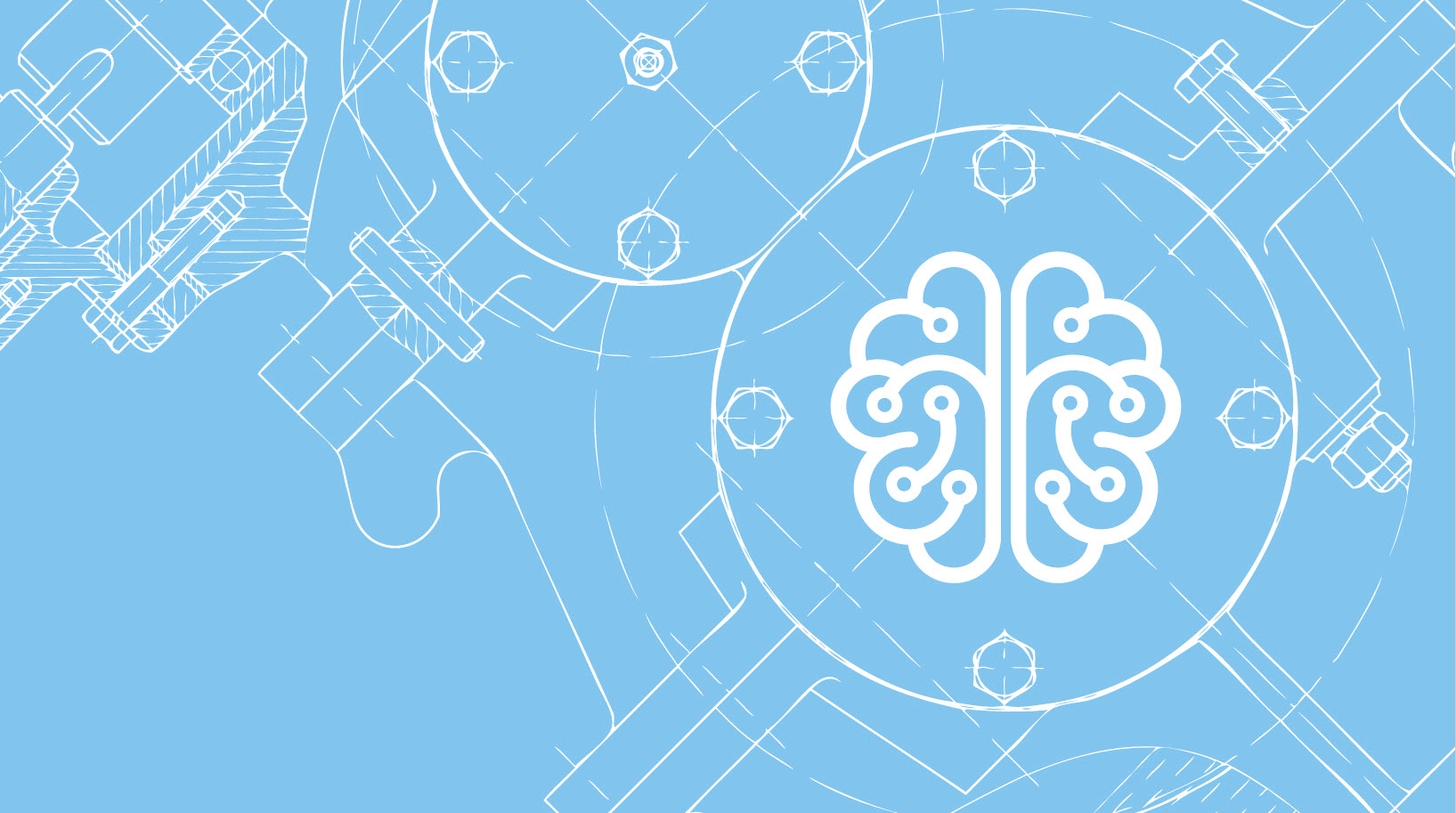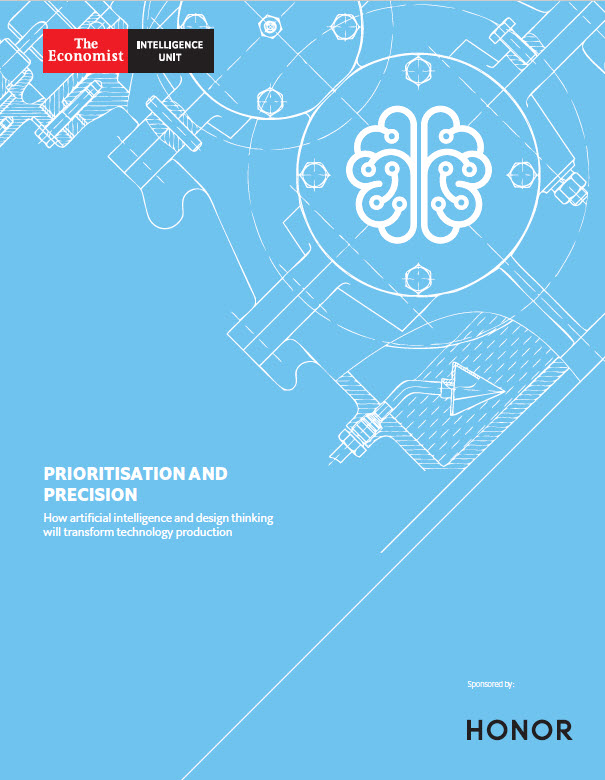Two major developments in technology hardware production dynamics—adoption of advanced innovations such as artificial intelligence (AI) and growing adherence to design thinking—are giving executives in the technology industry opportunities to experiment, optimise and boost agility, particularly as product design grows in importance within the production process.
Prioritisation and precision: How artificial intelligence and design thinking will transform technology production is an Economist Intelligence Unit report, sponsored by HONOR. It explores the impact of various innovations on product design and production operations in the technology industry. The analysis is based on a survey of 325 supply-chain and other executives conducted by The Economist Intelligence Unit in September and October 2018. The respondents hailed equally from five countries: China, Japan, South Korea, Germany and the US. All the respondents work in technology equipment companies, 34% of which earn annual revenue of US$1bn or more. Supply-chain executives account for 39% of the sample and IT executives 33%.
Key findings from the research include:
- AI is a prime agent of change. More than other technologies, AI will bring change to production innovation, according to 58% of survey respondents. Executives expect the foremost benefit from AI will be better product design. Two-thirds believe (and out of this, a third strongly) that integrating AI into the supply chain will facilitate the development of products with new and innovative designs. Two major reasons for this are:
- Automated prioritisation and sophisticated segmentation. AI will give companies the tools to automate the prioritisation of customer design preferences, and with greater precision. It will also lead to greater supply-chain segmentation, helping to make production more efficient overall.
- Accelerated development of flexible materials. AI will also drive advances in materials science. It is helping scientists today to greatly accelerate the discovery of new compounds. In the survey, seven in ten respondents believe flexible smartphones may be ubiquitous by 2020 thanks to advances in material science.
- The logic for broader integration is becoming irresistible. In a more holistic sense, product design and supply-chain management are tightly interlinked today in the technology industry, and are likely to become more so. The spreading influence of design thinking—cited by 82% of executives in our survey—and adoption of advanced technologies are helping drive this trend.






